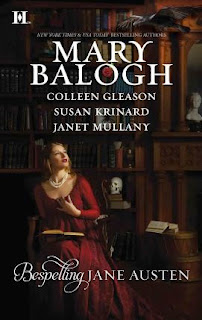
Earthquakes and storms! Last week was quite eventful here in the Washington, D.C., area. Luckily we got through it unscathed. Just a little fear from the earthquake and only a few buildings damaged (this image showing damage to the National Cathedral is from The Atlantic Wire ). Just a lot a twigs and leaves from the hurricane here at our house, although there were several trees down in the Washington, DC area.
I got to wondering what such events would be like during the Regency?
Would there even be an earthquake in the British Isles? Seems even more unlikely than in Northern Virginia. Turns out, I found one—almost. In The London, Edinburg, and Dublin Philosophical Magazine and Journal of Science, Vol. XXI, July-Dec 1842, was an article titled On The Earthquake Felt In Parts Of Cornwall, On February 17, 1842. Not exactly Regency era, but close enough!
The experiences recounted in the article were remarkably like how people experienced the earthquake in Virginia.
At Berkeley Vale, Falmouth:
About twenty minutes before nine a.m., I heard a peculiar rumbling sound, more like the moaning of the wind than thunder, which was immediately followed by a shaking of the doors and windows of the house, the whole effect lasting about half a minute. In the environs of the town of Falmouth, the noise particularly attracted attention, and although but few speak of any tremor, yet all describe it either as resembling the fall of a heavy body, or like a distant explosion. Many persons were fully persuaded a steam vessel had blown up in the harbour.
This about describes what I felt in my house, and many people around this area, still recalling 9/11, first thought of an explosion, a bomb.
The article goes on:
An intelligent person, captain of Poldory mine, describes it thus :—” I imagined some of the empty railroad waggons had been let go at the top of the incline, and were rapidly rushing past the door of my house: my neighbour, a widow woman, ran out shrieking that the side of her house was coming in.”
Many here thought the initial sound came from trucks rumbling by. I was, by the way, the modern version of that widow woman above.
I could not find information about hurricanes in Regency England, although there were many accounts of hurricanes in the West Indies and “the Colonies.” What I did find was a description of a gale from the Annual Register, Vol. 60, for the year 1818.
The whole of last night it blew the most tremendous gale from the S. S. E. that can be remembered. The Hamsley, of and from Sunderland, sunk between the buoys of the Horse and the Elbow; the crew took to the rigging, and were all fortunately saved this morning at day light by a pilotboat that went off to their relief. During the gale, the whole of the wood-work of the new Pier at Ryde was washed away, and several houses to the eastward of the pier washed down. The ships in the roads and harbour rode out the gale. The Lively cutter had her bulwarks washed away; the brig Assiduous, Jenkins, parted from one of her anchors; the brig Shillelagh had her boats washed over her side; and the Tamar sloop of war slipped one of her cables.
Images from the Hurricane Irene hitting the east coast came to mind while I read this. Houses damaged. Piers washed away. How our ships took off for the high seas in anticipation of the storm. People needing rescue. Boats damaged.
In the more heavily flooded areas of New York and New Jersey, I watched reports of the rescue of two young men who were caught in the flood. There were reports of several people who tried to be out and about during and after the storm who experienced difficulties.
Here is more of that report from 1818 Portsmouth:
It is with regret that we must close this disastrous relation by stating, the drowning of the Hon. Mr. Thellusson (brother of Lord Rendlesham), Mr. Hassall (son of J. Hassall, Esq. of Hartshorn, county of Derby), and Mr. Leeson (son of the Hon. Mrs. Leeson), all midshipmen of his Majesty’s ship Tiber, who left that ship, soon after the gale commenced, in a wherry, which was pooped by a sea at the mouth of the harbour, and was never seen afterward: the waterman (Brown) and a boy also perished. These young gentlemen, who were most highly esteemed by their brother officers, were tempted to leave the ship at this hazardous moment by their anxious desire to see the performance of Mr. Kean that evening.
I guess young men can be foolish in any era.
Did you have any problems with the earthquake or the hurricane? If not these events, what about earthquakes and storms of years past?



